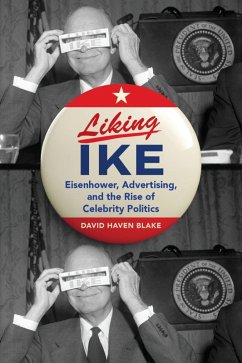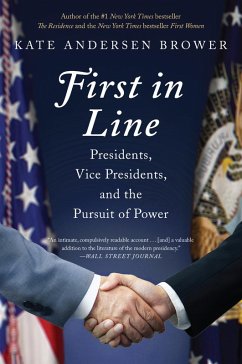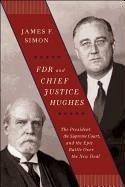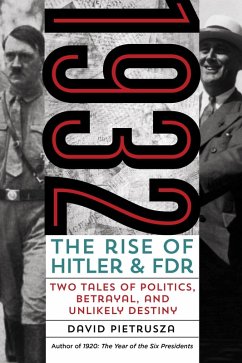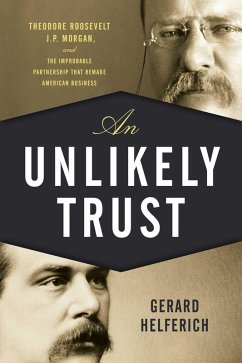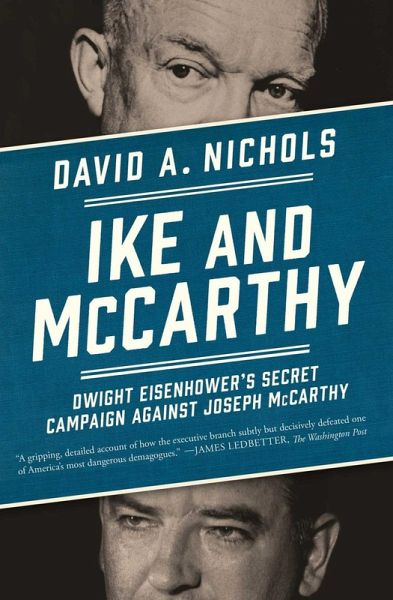
Ike and McCarthy (eBook, ePUB)
Dwight Eisenhower's Secret Campaign against Joseph McCarthy
Versandkostenfrei!
Sofort per Download lieferbar
13,84 €
inkl. MwSt.
Weitere Ausgaben:

PAYBACK Punkte
0 °P sammeln!
The full, little-known story of how President Dwight Eisenhower masterminded the downfall of the anti-Communist demagogue Senator Joseph McCarthy is "a gripping, detailed account of how the executive branch subtly but decisively defeated one of America's most dangerous demagogues" (The Washington Post). They shook hands for the cameras, but Dwight Eisenhower privately abhorred Senator Joseph McCarthy, the powerful Republican senator notorious for his anti-Communist campaign. In spite of a public perception that Eisenhower was unwilling to challenge McCarthy, Ike believed that directly confront...
The full, little-known story of how President Dwight Eisenhower masterminded the downfall of the anti-Communist demagogue Senator Joseph McCarthy is "a gripping, detailed account of how the executive branch subtly but decisively defeated one of America's most dangerous demagogues" (The Washington Post). They shook hands for the cameras, but Dwight Eisenhower privately abhorred Senator Joseph McCarthy, the powerful Republican senator notorious for his anti-Communist campaign. In spite of a public perception that Eisenhower was unwilling to challenge McCarthy, Ike believed that directly confronting the senator would diminish the presidency. Therefore, the president operated-more discreetly and effectively-with a "hidden hand." In "a thorough, well-written, and surprising picture of a man who was much more than a 'do-nothing' president" (Kirkus Reviews, starred review), David A. Nichols shows how the tension between the two men escalated. In a direct challenge to Eisenhower, McCarthy alleged that the US Army was harboring communists and launched an investigation. But the senator had unwittingly signed his own political death warrant. The White House employed surrogates to conduct a clandestine campaign against McCarthy and was not above using information about the private lives of McCarthy's aides as ammunition. By January 1954 McCarthy was arguably the most powerful member of the Senate. Yet at the end of that year, he had been censured by his colleagues for unbecoming conduct. Eisenhower's covert operation had discredited the senator months earlier, exploiting the controversy that resulted from the televised Army-McCarthy hearings. McCarthy would never recover his lost prestige. In Ike and McCarthy, Nichols uses documents previously unavailable or overlooked to authenticate the extraordinary story of Eisenhower's anti-McCarthy campaign. The result is "a well-researched and sturdily written account of what may be the most important such conflict in modern history….Americans have as much to learn today from Eisenhower as his many liberal critics did in 1954" (The Atlantic Monthly).
Dieser Download kann aus rechtlichen Gründen nur mit Rechnungsadresse in A, B, BG, CY, CZ, D, DK, EW, E, FIN, F, GR, HR, H, I, LT, L, LR, M, NL, PL, P, R, S, SLO, SK ausgeliefert werden.





